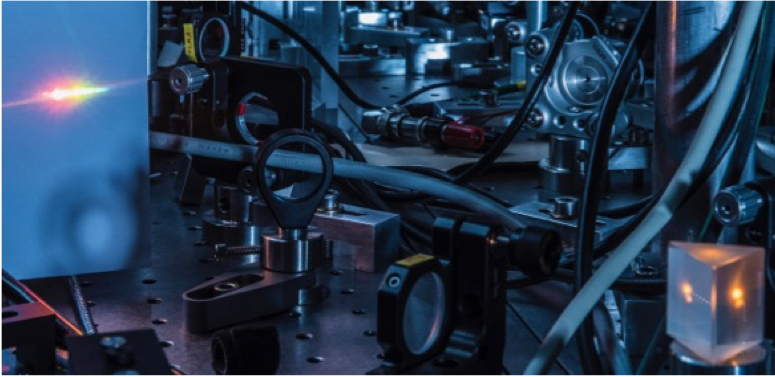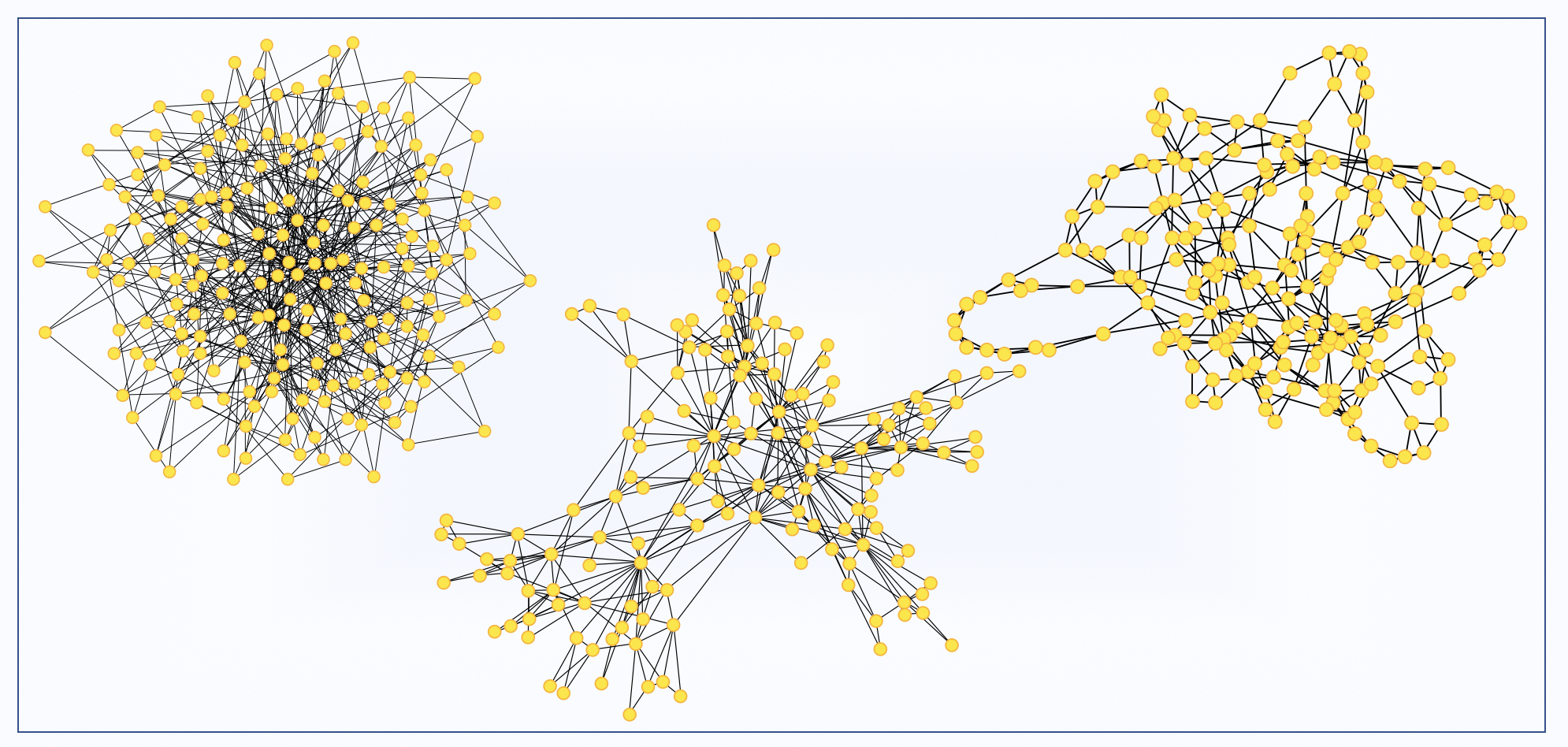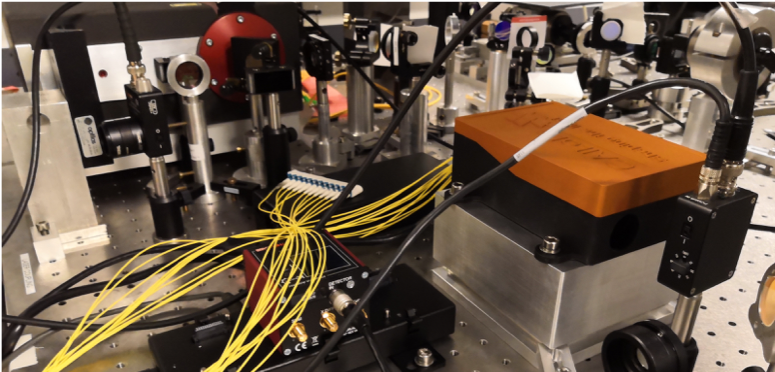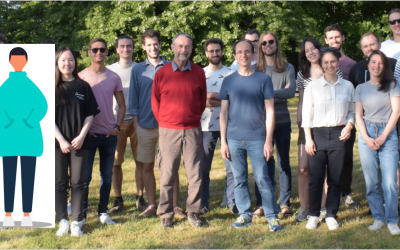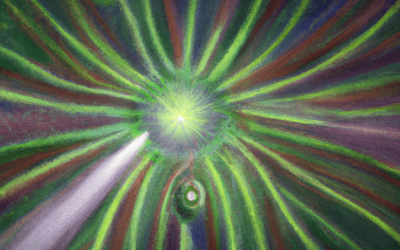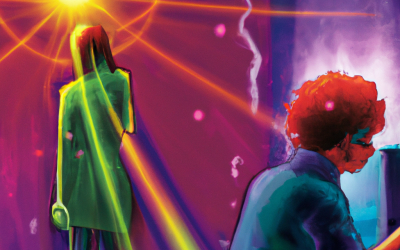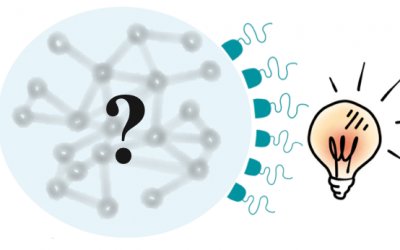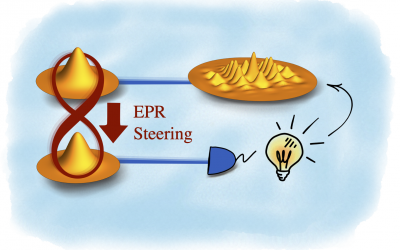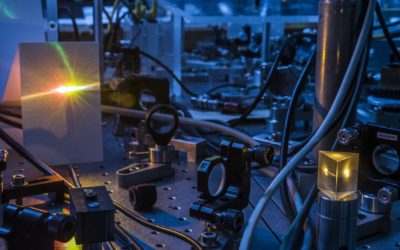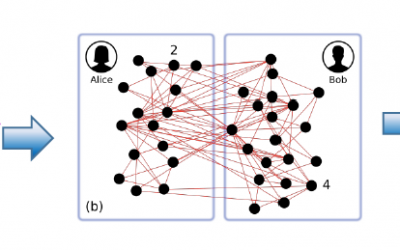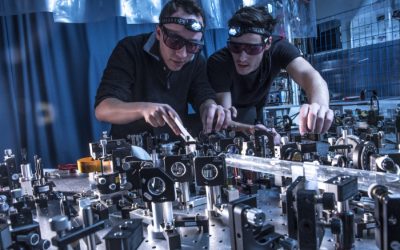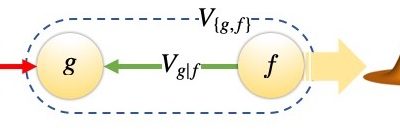Multimode quantum optics
Quantum Optics, as the child of Optics and Quantum Mechanics, has inherited a double linearity: that of Maxwell equations, which use optical modes as a basis of solutions, and that of the Schrödinger equation, which uses quantum state bases. Considering these two bases on an equal footing and tailoring quantum fields not only in given modes, but also optimizing the spatio-temporal shapes of the modes in which the state is defined, opens wide perspectives for treating complex quantum states. Our aim is to explore and characterize theoretically the quantum states that span on many optical modes (from several tens to several thousands) and many Hilbert space basis states, to unravel their intrinsic properties and to find optimized witnesses of different properties such as multi-entanglement. We also investigate the use of optimized multimode states for pushing the quantum limits of the multiplexed estimation of physical parameters and for increasing the channel capacity of optical communications.
Femtosecond Quantum Information
Quantum Complex Networks
Modal approach to multi-parameter estimation
The team!

News
Postdoc positions available in the Multimode quantum optics team
Experimental and theoretical postdoc positions available ! Contact us
Post-doctoral position: Experimental Continuous Variable quantum networks for quantum technologies
A postdoctoral position is open at Laboratoire Kastler Brossel to work on the implementation of continuous-variable quantum complex networks. The project aims at the experimental implementation of large and complex optical networks based on continuous-variable...
Post-doc offer: Theory of non-Gaussian quantum state engineering for quantum technologies.
We are recruiting a theory post-doc to work on topics related to quantum state engineering! Do you think you can help us create non-Gaussian entangled states?
Post-doc position: Optical Quantum parameter estimation: from theory to experiments
Overview A fundamental task in quantum metrology is to identify the ultimate sensitivity limit in the estimation of a parameter encoded into a quantum state. Even under ideal conditions, when all technical noise sources are removed, quantum noise poses unavoidable...
Post-doc position: Large-scale non-Gaussian entanglement and applications
Scientific context Our group, the multimode quantum optics group of Laboratoire Kastler Brossel, pioneered many aspects of continuous variable (CV) approach to quantum optics. Our main objects of interest are the quadratures of the electric field, which are typically...
Two side of the same coin: EPR steering and Wigner negativity
Einstein-Podolsky-Rosen steering is the quantum correlation in the Gaussian state, shared by Alice and Bob, that allows to remotely induce Wigner negativity.
Open post-doc position – Quantum frequency combs for multimode non-Gaussian states with application to quantum metrology
Overview Our group, the multimode quantum optics group of Laboratoire Kastler Brossel, pioneered many aspects of continuous variable (CV) approach to quantum optics. Our main objects of interest are therefore the quadratures of the electric field, which are typically...
Open PhD position – quantum complex communication networks
ERC consolidator grant COQCOoN ( PI: Valentina Parigi - valentina.parigi@lkb.upmc.fr) Complex network theory has provided a deep insight of complex systems, assembling theoretical tools able to the describe dynamical behavior of biological, social and technological...
Non-Gaussian quantum states of a multimode light field
Quantum computers require a range of properties. First of all, we want them to be programmable to tackle a wide range of different problems. Furthermore, we also want them to be scalable, which means that we can put fundamental building blocks together to build a...
Internship: steering non-Gaussian quantum states
The multimode quantum optics group has an open position for a theory internship to study the connection between quantum steering and non-Gaussian effects.

